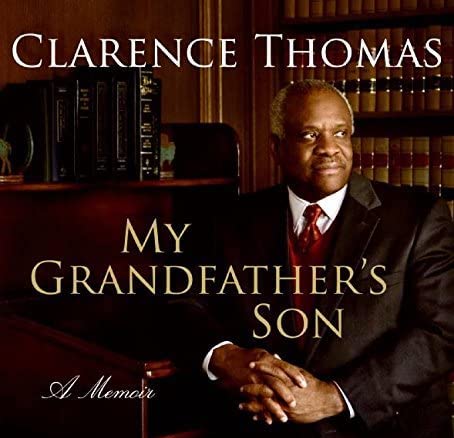Better Than Some of the Alternatives: In Defense of Making Bank on Books
 There is no cap on the amount of money Supreme Court justices may earn from book royalties.
There is no cap on the amount of money Supreme Court justices may earn from book royalties.
From an ethics perspective, that’s probably fine — so long as the content is consistent with judicial ethics (cf., “no previews,” etc.), and the justice(s) recuse should their publisher have a case before them.
Look at it the other way: say you’re a Supreme Court justice and you’re not permitted to make bank on a book. Then what would happen? This would happen — that is, justices would leave the bench after just a handful of years and cash in on their cachet at a law firm or, per the link, as a well-compensated arbitrator. That would be less than ideal.
Not having a cap on book royalties is a strong incentive for justices like Thomas and Sotomayor, who do not come from wealth, or Barrett, who with her husband has seven kids to care for, to remain in government service and not look at SCOTUS as a resume-burnishing pit stop.
With that as the background, this week the public learned that Justice Barrett has a $2 million book deal with an imprint of Penguin Random House.
We hope that should PRH have a case before SCOTUS, she and the other justices on its “payroll” would recuse.
Since 2009, in order of payout and rounded to the nearest $1,000:
– Justice Sotomayor has earned $3.272 million from PRH and PRH imprints;
– Justice Barrett will receive a reported $2 million from a PRH imprint;
– Justice Gorsuch has earned $555,000 from PRH; and
– Justice Breyer has earned $337,000 from PRH and PRH imprints.
And since 2009, there have been two SCOTUS petitions with PRH as a party, 12-965 and 19-560, and in each only Breyer recused, likely due to his wife’s shares of British publisher Pearson, which her family founded, and which, from 1970 to 2020, held a large stake in PRH.
In both cases, the respondents — that is, PRH — waived the right to respond. That means no corporate disclosure statement, which, according to SCOTUS rules, means there “would be no way to find out there was a conflict.”
But come on. PRH is in the caption in both.
In any event, a few PRH cases are making their way through the federal courts (most interesting: this one, where large publishers are suing the Internet Archive for copyright infringement), and we’ll keep an eye on them, since the impartiality of anyone making that much money from a single source “might reasonably be questioned.” (Justice Thomas’ book was published by HarperCollins, and there are no recent SCOTUS case where it or its parent, NewsCorp., was a litigant.)
And remember, court-watchers: if Justices Roberts, Alito, Kagan and Kavanaugh don’t write books, they can always earn up to 15% of Level II of the Executive Schedule ($199,300), or $29,895 for 2021, by teaching.